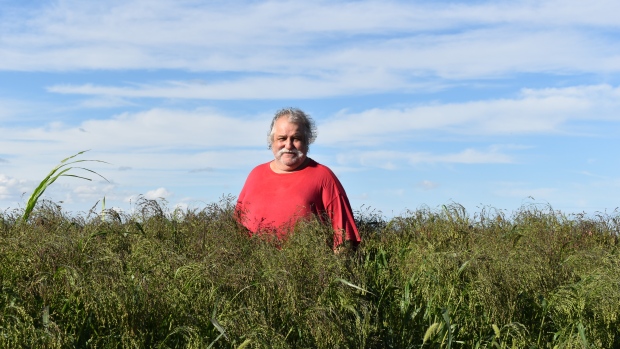Canada 'Millet King' plans to use the grain to make his own cereal, beer
, BNN Bloomberg

It’s known as a healthy and nutritious super-grain in many parts of the world, but in Canada, millets are often thought of as animal feed or bird seed.
Reynald Gauthier, aka “The Millet King,” a Manitoba farmer who has been growing millets for over three decades, is hoping this will be the breakthrough year for the grain in Canada, even as 2023 is being observed as the International Year of Millets by the United Nations.
Gauthier is gearing up to launch an all-Canadian breakfast cereal called Millet King Krunchies, made from millets, and coated with maple syrup from Quebec. He has developed and tested the product in partnership with the Manitoba Food Development Centre in Portage La Prairie. He plans to process and package the cereal in Toronto, and sell it through his website, milletking.com.
Millets are small-seeded grasses rich in protein, fibre and essential minerals. They are warm weather crops with low fertilizer and irrigation needs. Over 30 million tonnes of millets are produced annually worldwide, with Canada currently accounting for a negligible amount of this production, where it is grown mostly in the Prairies and in Ontario.
When Gauthier bought his first farm in St. Claude, Man., in 1991, millets were a crop of convenience, not choice.
“With the high interest rates of the 1980s, people were still hurting,” he recalled. “I didn’t have much money to work with, so I seeded millets on my farm because it was the cheapest crop to grow.”
After selling millets from his farm as bird food for the first 10 years, he decided to switch to selling millet seeds after prices crashed to about six cents per pound after 2000. He set up Millet King Seeds in 2004, and six years later it became Millet King Foods, as Gauthier’s ambitions for the grain grew.
“When I sold it for bird food, I made nothing. It was too cheap and that’s why I decided to sell to the farmers towards planting seed because then it’s worth five times more. And then going into a food product, it’s worth about 20 times the bird food price,” Gauthier explained. Millet seed now fetches about $0.65 per pound.
Gauthier’s farmland has tripled from a little over 200 acres at the beginning, and his net harvest amounts to 1,600 pounds per acre in a good year. Even as he plans to add more acreage, he has stayed loyal to his first crop rather than switching to other major Canadian crops like wheat or canola.
“Oh, I just love the millet crop,” Gauthier said. He added, “You seed it later in the year and you can work your land and you’re killing any diseases that’s in it. My ground is so rich by seeding millets over the years, it’s just incredible. My ground is very healthy right now.”
The farmer has even bigger plans for his millets, including setting up a brewery to make his millet-based beer that has previously won a prize at the Great Manitoba Food Fight, just like his cereal. Gauthier said,
“I’m selling millet flour online. I want to start building my brewery. I’ve got six products right now and I’m hoping that five years from now I’ll have a hundred products being sold online. I’m looking at having our own little stores, and also opening up donut shops where the donuts will be made with millet flour.”
India, which produces over 12 million tonnes annually, making up over 40 per cent of global output, is by far the world’s biggest millet grower, and was the driving force behind designating this year as the International Year of Millets.
Several countries in Africa, and China, are also big cultivators. According to Agriculture and Agri-Food Canada, researchers here are working on projects locally and with partners in India, to study various varieties of millets and their uses, which include human consumption, carbon capture and biofuels.
No comments:
Post a Comment